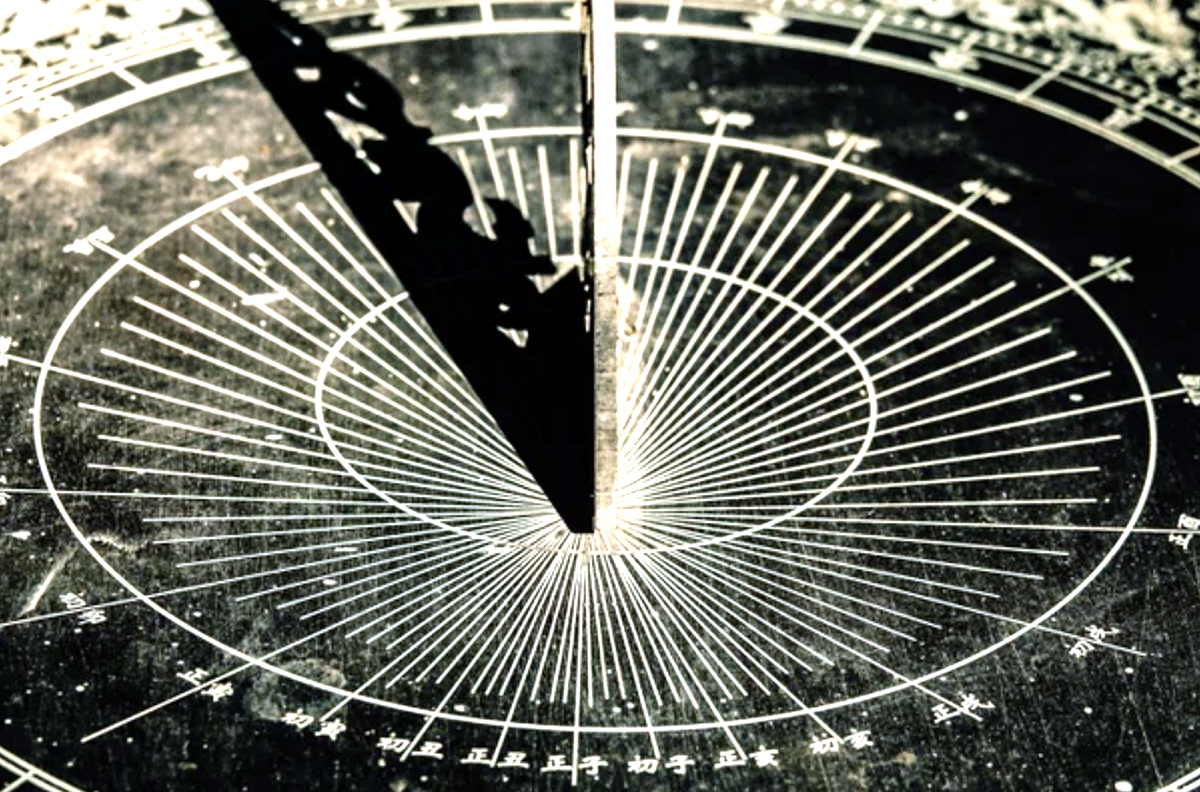Unsolicited Advice
It’s About Time

Let’s talk about time.
First, so we’re all clear: time is made up. To be sure, we experience life in sequence, with memories that separate past from present and imaginations that conjure futures. Most of us know if something is happening now or before, and most of us know generally how long before something occurred. We know that intentions describe future actions and not present ones.
But time? Seconds, minutes, hours, days, years? We made that up. We could have decided that three sunrises is one thing, or that we alternate between “light days” and “dark days” of 12 hours each. We could have broken daylight into three big chunks instead of lots of little ones. Or, conversely, into many more smaller ones of 23 minutes each.
The custom we ended up with—hours divided into minutes divided into seconds—is completely arbitrary. We made it up and have, over time, come to broadly agree on it.
And not only that: the way we measure it is made up, too! We invented the numbers that count the hours that measure our days.
That’s amazing, considering what a dominant role those made-up values play in most of our lives.
Age, deadlines, fees, rates, anniversaries, retirements, doctors’ appointments…in big and small ways, the made-up components of measured time dominate our journey through the only temporal absolute: the trip from birth to death.
As musicians, we have a constant relationship with time. Music is a time art. It has a beginning and ending adorned with the actions in between, just like life itself. It is fundamentally the control of time, replacing minutes and seconds with beats and phrases, peaks and valleys, new ideas and recalled ones, so that, in the course of a song, the time span is not “three minutes and four seconds,” but rather, ideally, one (1) song, both across measured time and completely agnostic of it.
Even if the underlying pulse of a song might line up with measured time—60 beats in a minute, or one beat every mathematical second—we think of where in that beat we are going to plant our sound. Will we sit on the front edge and propel time along? Will we sit in the middle and hold it confidently to the grid? Will we wait and “tap the beat on the butt as it walks by,” letting the groove expand to its limit like a water balloon? Will we make our statements once every four or six or eight beats, redefining how we subdivide that time, creating a new means of measurement that simultaneously surprises and reassures as the listener rides along with us?
For someone whose job is defined by the relationship to time in my art, I have had the craziest of relationships with it in life. It has seemed like I’m always ahead of or behind the beat. Grade-skipping landed me in high school and then college two years younger than everyone else. The only thing worse than being a short, nerdy teen in high school, is being a short nerdy pre-teen in high school!
I lost my dad early. I had kids late. I started my real career in my 30s, started grad school in my 40s, didn’t finish my PhD until my 50s. I did it all backward! I’ve almost died-too-soon a couple of times now. I am too late for the singer-songwriter era I most write like and will die too soon for us to find aliens.
This rumination on the nature of time was prompted by the stark reality of the number on last month’s figurative birthday cake. Somehow, against my own conception—and in spite of a host of behaviors that should have made it moot—I turned 60 this past month.
I am supposed to be chastened by that crooked number. It is much older than my father’s father ever got, pretty close to when mom’s dad died, and not too much younger than dad himself was when he died.
And yet—as the legendary philosophers Tegan and Sara Lego said—everything is awesome. I mean it. If anything, I am having a banging year! (Note to universe: please don’t punish me for saying that.) Certainly, some years have contained better “spikes,” particularly, the two years of my kids’ births.
But overall? Shit’s clicking! I’m going into my 60s weighing less than I did in my 30s. I finished the degree that a contentious divorce sidetracked. I’m putting records out again. I’ve gotten to play on some great albums and produce a couple of others. I’m teaching stuff I love to teach and am playing stuff I love to play. My kids are at their best, full of fresh worldly surprises every day. For this and other reasons, instead of heading into a coda, I feel like I am just starting a third movement. I am supposed to be mourning time lost and gone, but instead I’m filled with hope about time to come.
It’s not supposed to be this way.
I have a piano student I began teaching when she was in her late 70s. She could already play, don’t get me wrong. But she started lessons again because she really wanted to play in a piano bar before she “closed her eyes for the last time.” She had a vision in her head of being a paid musician playing popular songs while people sang along. She knew it was a pipe dream but that was her talisman.
We continued lessons through the pandemic and resumed in person last year. She kept asking if she was too old to see her dream through. I told her that, if anything, her age could be her “thing,” that the tiny older woman playing the crap out of the piano could be an asset and not a detriment. Self-doubt and the inescapable mathematics of measured time counter-argued, and this push-pull both propelled her forward and held her back.
One day last year I opened the computer and gave her a list of places that have hired piano players. The next lesson, she asked for a ride to one of the locations I’d mentioned, so she could get a sense of what it would feel like to drive to a place and play there.
By the next lesson, she’d set up an audition. And by the one after that, she’d been offered a one-time Wednesday slot.
Now she plays there every week. She is 83, just beginning the career she’d always wanted. And she’s the perfect age for the job she’s doing.
This month’s unsolicited advice: leave time. Ignore the arbitrary number and use the rhythm as your guide. We made up the measurement. So, make up your own. Control time; redefine the pulse.
We always say music is in the silences. Well, life is in the noise. Invent whatever measure of time lets you make the loudest noise before you close your eyes for the last time. You owe the doctor your attendance to the customs of measured time. You owe the dirt your defiance of it. Like a song, our ideal life span is one (1) life, locked inevitably in time, but lived agnostic of it. Go start it. It’s about time.

Josh Weinstein is an SDMA-winning songwriter, arranger, producer, and pianist/organist/keyboard player originally from New York. He holds a Ph.D. in music and teaches college and private lessons across a variety of disciplines. His dog is way cooler than he is.










